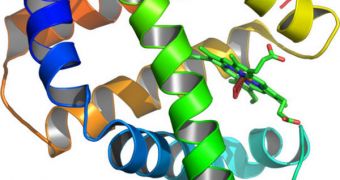A new series of investigations has uncovered the existence of a so-called survival protein inside the brain of rodent animal models. The molecule apparently plays a role in protecting the brain by preventing a certain type of cell death.
The finding is extremely interesting because it hints at a potential mechanism for addressing the consequences of such human health problems as heart attack and diabetes. Complications spawned by these conditions lead to the same type of cell death the newly-found molecules protects against.
Scientists from the Johns Hopkins University (JHU) believe that this protein is only effective when the harmful events to which the brain is subjected to are not lethal. This gives a whole new meaning to the expression “what doesn't kill you makes you stronger.”
When the research team noticed this correlation, researchers jumped at the opportunity of figuring out its basic pathways. They determined that, once the brain is subjected to a harmful stimuli (but survives), a series of molecular mechanisms are triggered to prevent similar damages of the same type.
It was also found that the protein called Iduna is one of the critical molecular players in underlying this ability. Details of the new research appear in the May 22 advance online issue of the top scientific journal Nature Medicine.
In a set of experiments conducted on preconditioned mouse brain tissues, experts determined that Iduna protein concentrations were 300 to 400 percent higher than usual. “Apparently, what doesn’t kill you makes you stronger,” says Valina Dawson, PhD.
“This protective response was broad in its defense of neurons and glia and blood vessels – the entire brain. It’s not just a delay of death, but real protection that lasts for about 72 hours,” the expert adds.
Dawson holds an appointment as a professor of neurology and neuroscience with the JHU Institute of Cell Engineering, Science Blog reports. She explains that here team conducted a series of verification experiments to test the correlation.
It was found that cells which had been exposed to the protective protein were very likely to endure when injected with a harmful chemical than cells that received no such treatment. In other words, the molecule prevents the entry of the cell-death-inducing factor (AIF) into cells.
“Identifying protective molecules such as Iduna might someday lead to drugs that trigger the brain survival mechanism when people have a stroke or Parkinson’s disease,” explains Ted Dawson, MD, PhD.
He holds an appointment as the Leonard and Madlyn Abramson Professor in Neurodegenerative Diseases at the JHU, and as the scientific director of the Johns Hopkins Institute for Cell Engineering.

 14 DAY TRIAL //
14 DAY TRIAL //